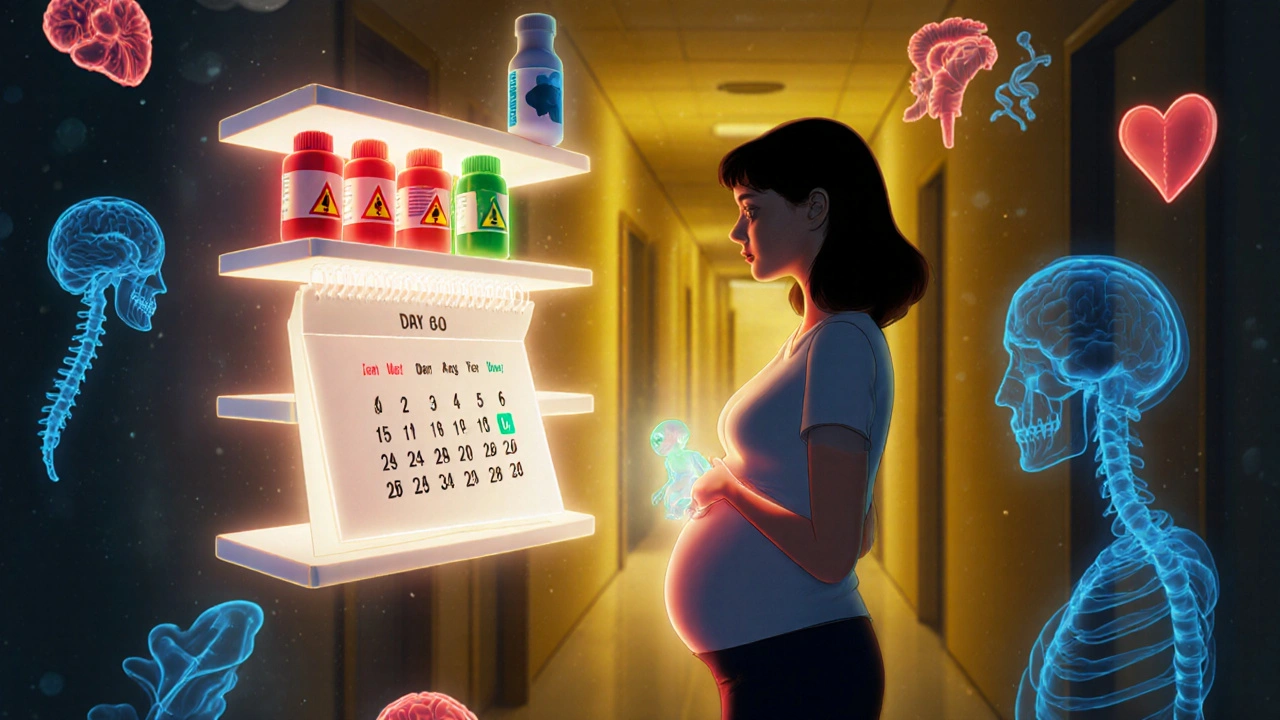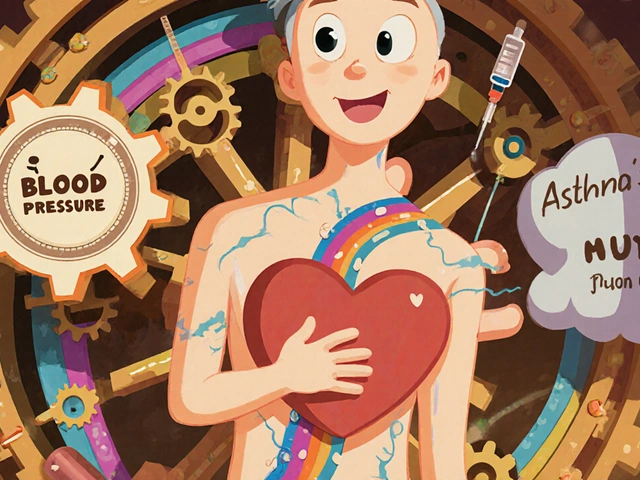Teratogenic Medications: What They Are and Which Drugs to Avoid During Pregnancy
When you're pregnant, what you take doesn't just affect you—it can shape your baby’s development. Teratogenic medications, drugs that can cause birth defects when taken during pregnancy. Also known as fetal toxins, these substances interfere with how organs and tissues form in the womb, especially during the first trimester. Not every drug is dangerous, but some common prescriptions, over-the-counter pills, and even supplements carry real risks you might not know about.
Think of fetal development like building a house. The first 12 weeks are when the foundation, walls, and roof are laid. If a teratogenic drug is present during that time, it can warp the structure—leading to heart defects, cleft lips, limb shortages, or brain changes. Isotretinoin, a powerful acne drug, is one of the most well-documented examples. Even a short course can cause severe abnormalities. Thalidomide, a sedative once prescribed for morning sickness, led to thousands of babies born with missing or shortened limbs in the 1950s. And while that drug is banned now, others like warfarin, a blood thinner, still pose risks if used during pregnancy. Even some antidepressants and anti-seizure meds have been linked to developmental issues.
It’s not just about avoiding known dangers. Many women don’t realize they’re pregnant until after the critical window has passed. That’s why planning matters. If you’re trying to conceive—or could get pregnant—talk to your doctor about every medication you take, even herbal teas or vitamins. Some drugs can be swapped for safer alternatives. For example, teratogenic medications like ACE inhibitors for high blood pressure can be replaced with methyldopa or labetalol. Your provider can help you weigh the benefits of treating your condition against the risks to your baby.
The posts below cover real cases and practical advice from patients and doctors. You’ll find guides on managing chronic conditions during pregnancy, spotting hidden risks in common prescriptions, and understanding how drugs like anticonvulsants, anticoagulants, and hormone therapies interact with fetal development. Whether you’re planning a pregnancy, currently expecting, or just want to know what to ask your pharmacist, these resources give you the facts—not the fear—so you can make smarter choices.

Pregnancy and Medications: What You Need to Know About Teratogenic Risks and Birth Defects
Learn which medications can cause birth defects during pregnancy, how timing affects risk, and what to do if you're taking drugs before or during pregnancy. Get clear, science-backed guidance on teratogens and safe alternatives.
Categories
- Medications (71)
- Health and Medicine (62)
- Health and Wellness (37)
- Online Pharmacy Guides (16)
- Nutrition and Supplements (9)
- Parenting and Family (3)
- Environment and Conservation (2)
- healthcare (2)
- prescription savings (1)
Popular Articles



